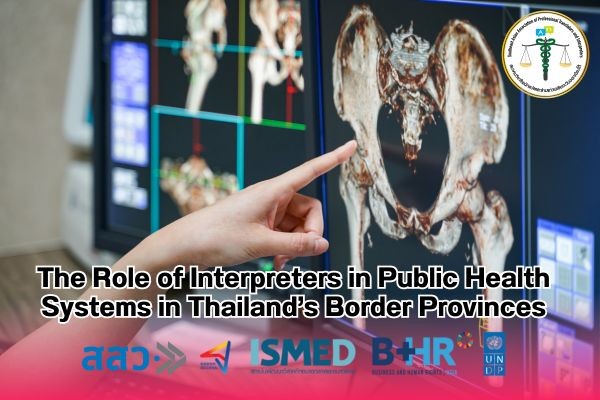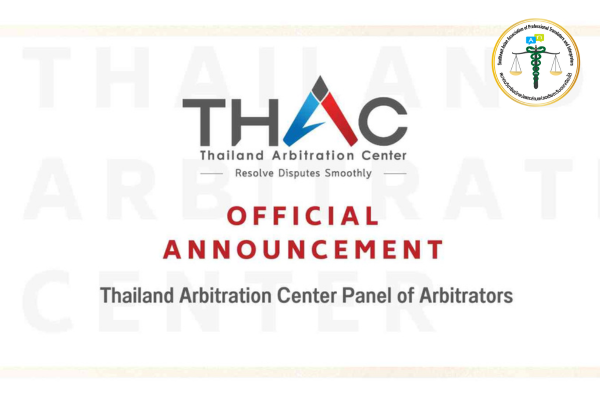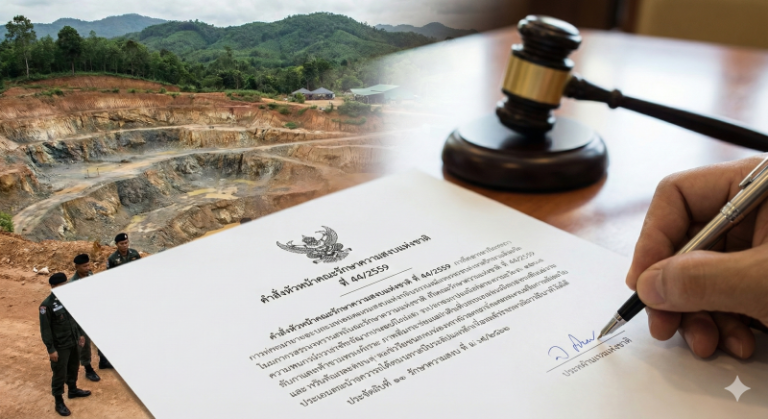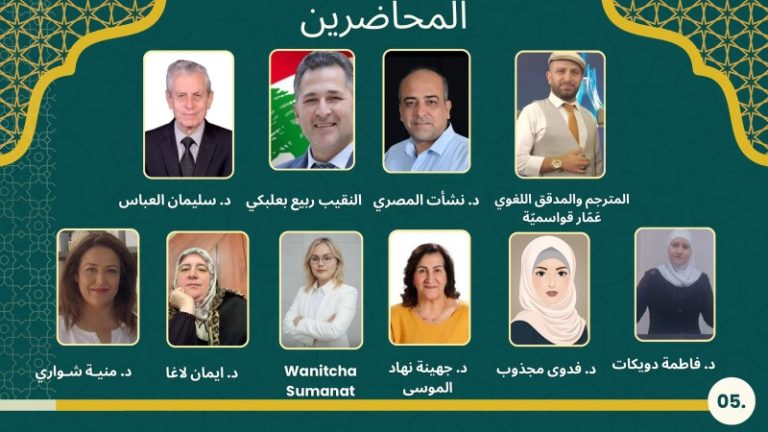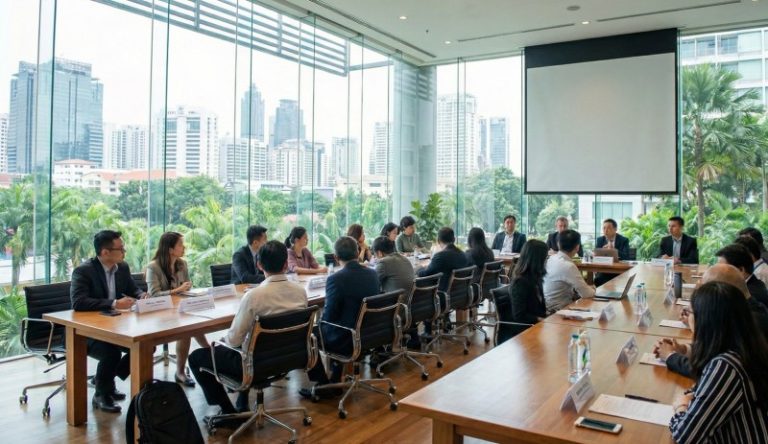The Role of Interpreters in Public Health Systems in Thailand’s Border Provinces
Abstract
9 July 2025, Chiangrai – Thailand’s border provinces—such as Chiang Rai, Mae Hong Son, Tak, and Ranong—are home to diverse ethnic groups and migrant populations, particularly from Myanmar, Laos, and Cambodia. This linguistic and cultural diversity presents significant challenges to healthcare communication and service delivery. Language barriers hinder accurate diagnosis, treatment adherence, and equitable access to health services. This article explores the critical role of interpreters in the public health system in Thailand’s border areas. It highlights their functions not only as linguistic mediators but also as cultural brokers who enhance clinical communication and ensure safe, effective, and culturally appropriate care for migrant and ethnic minority patients.
1. Introduction
Thailand serves as a regional hub for labor migration and humanitarian displacement in Southeast Asia, particularly along its borders with Myanmar and Laos. According to the International Organization for Migration (2020), a large number of migrant workers and refugees reside in these regions, many of whom have limited or no proficiency in the Thai language. This linguistic gap contributes to health disparities and suboptimal health outcomes, as access to timely and accurate healthcare becomes limited for non-Thai-speaking populations.
2. The Importance of Interpreters in Border Public Health Systems
Healthcare interpreters play an essential role beyond simple translation. They must navigate complex medical terminology, understand local disease patterns, and convey sensitive health information across cultural boundaries. Their presence can prevent misdiagnosis, improve patient safety, and promote trust between patients and healthcare providers (Flores, 2005; Putsch, 1985).
In Chiang Rai province, for example, it is common for hospitals to rely on patients’ family members as ad hoc interpreters, even though these individuals are not trained and may lack neutrality or medical understanding. This practice often leads to clinical errors, such as mistranslation of symptoms, omission of crucial details, or miscommunication about treatment plans (Tangcharoensathien et al., 2017).
3. Barriers to Effective Interpreter Use
Despite recognition of their importance, the deployment of professional interpreters in Thailand’s border health systems remains limited. Key barriers include:
- A shortage of trained medical interpreters fluent in ethnic minority or migrant languages
- Budgetary constraints preventing the hiring of full-time interpreters
- Reliance on informal or volunteer interpreters (e.g., fellow patients or relatives), who may lack impartiality and expertise
- Inefficient allocation of interpreting services, leading to delays in emergency care or maternity services (WHO, 2019)
4. Policy Recommendations and Development Strategies
To ensure equitable access to healthcare for all, Thailand’s public health system should consider the following:
- Develop formal training programs for medical interpreters in key border languages (e.g., Shan, Burmese, Karen) in collaboration with universities and NGOs
- Establish official “Health Interpreter” positions within the Ministry of Public Health
- Invest in technology-based solutions, such as mobile medical translation apps and remote video interpreting
- Promote research and evaluation of medical interpreting practices in ethnolinguistically diverse settings
5. Conclusion
Interpreters are a vital component of an inclusive and responsive healthcare system, particularly in border provinces where language barriers are a structural impediment to care. Improving the quality and availability of medical interpreting services is not only a matter of patient safety but also of health equity and human rights. Thailand’s national health strategies must incorporate interpreter services as a core element of migrant and ethnic health policies.
References
- Flores, G. (2005). The impact of medical interpreter services on the quality of health care: A systematic review. Medical Care Research and Review, 62(3), 255–299. https://doi.org/10.1177/1077558705275416
- International Organization for Migration. (2020). Migration health annual report 2020: Thailand. IOM Thailand.
- Putsch, R. W. (1985). Cross-cultural communication: The special case of interpreters in health care. JAMA, 254(23), 3344–3348. https://doi.org/10.1001/jama.1985.03360230082030
- Tangcharoensathien, V., Thwin, A. A., & Patcharanarumol, W. (2017). Implementing health insurance for migrants, Thailand. Bulletin of the World Health Organization, 95(2), 146–151. https://doi.org/10.2471/BLT.16.179606
- World Health Organization. (2019). Health of refugees and migrants: Practices in addressing the health needs of refugees and migrants. WHO Regional Office for Europe.
SEAProTI’s certified translators, translation certification providers, and certified interpreters:
The Southeast Asian Association of Professional Translators and Interpreters (SEAProTI) has officially announced the criteria and qualifications for individuals to register as “Certified Translators,” “Translation Certification Providers,” and “Certified Interpreters” under the association’s regulations. These guidelines are detailed in Sections 9 and 10 of the Royal Thai Government Gazette, issued by the Secretariat of the Cabinet under the Office of the Prime Minister of the Kingdom of Thailand, dated July 25, 2024, Volume 141, Part 66 Ng, Page 100. the Royal Thai Government Gazette
บทบาทของล่ามในระบบสาธารณสุขในจังหวัดชายแดนของประเทศไทย
บทคัดย่อ
9 กรกฎาคม 2568, เชียงราย – จังหวัดชายแดนของประเทศไทย เช่น เชียงราย แม่ฮ่องสอน ตาก และระนอง เป็นพื้นที่ที่มีความหลากหลายทางชาติพันธุ์และภาษาสูง โดยเฉพาะอย่างยิ่งกลุ่มผู้อพยพจากประเทศเพื่อนบ้านอย่างเมียนมา ลาว และกัมพูชา ความหลากหลายทางภาษาในพื้นที่เหล่านี้ก่อให้เกิดอุปสรรคด้านการสื่อสารระหว่างบุคลากรทางการแพทย์กับผู้รับบริการสาธารณสุข ซึ่งส่งผลกระทบต่อคุณภาพการรักษาและความปลอดภัยของผู้ป่วย บทความนี้มุ่งศึกษาบทบาทของล่ามในระบบสาธารณสุขชายแดนไทย โดยเฉพาะในฐานะผู้ประสานทางภาษาและวัฒนธรรมที่มีบทบาทสำคัญต่อการเข้าถึงบริการ การวินิจฉัยโรค การรักษา และการติดตามผลทางการแพทย์ของผู้ป่วยจากกลุ่มชาติพันธุ์และกลุ่มอพยพ
1. บทนำ
ประเทศไทยเป็นศูนย์กลางของการอพยพเคลื่อนย้ายแรงงานและผู้ลี้ภัยในภูมิภาคเอเชียตะวันออกเฉียงใต้ โดยเฉพาะบริเวณชายแดนที่มีพรมแดนติดกับประเทศเมียนมาและลาว จากรายงานขององค์การระหว่างประเทศเพื่อการโยกย้ายถิ่นฐาน (IOM, 2020) ระบุว่ามีแรงงานข้ามชาติและผู้ลี้ภัยจำนวนมากที่พำนักในพื้นที่ชายแดน และส่วนใหญ่ไม่สามารถสื่อสารด้วยภาษาไทยได้อย่างมีประสิทธิภาพ ส่งผลให้เกิดความเสี่ยงด้านสุขภาพและการเข้าถึงบริการสาธารณสุขต่ำกว่ามาตรฐาน
2. ความสำคัญของล่ามในระบบสาธารณสุขชายแดน
ล่ามในระบบสาธารณสุขไม่เพียงทำหน้าที่แปลภาษาเท่านั้น แต่ยังต้องมีความเข้าใจในบริบทวัฒนธรรม โรคประจำถิ่น ความเชื่อทางสุขภาพของผู้ป่วย รวมถึงศัพท์ทางการแพทย์ที่ซับซ้อน ล่ามจึงเป็นกลไกสำคัญที่ช่วยให้ผู้ป่วยได้รับการรักษาที่เหมาะสม ลดความเข้าใจผิด และเพิ่มประสิทธิภาพของการรักษา (Putsch, 1985; Flores, 2005)
ตัวอย่างเช่น ในจังหวัดเชียงราย โรงพยาบาลหลายแห่งต้องใช้ญาติผู้ป่วยเป็นล่ามโดยไม่ได้รับการฝึกอบรมอย่างเป็นทางการ ซึ่งอาจนำไปสู่ความผิดพลาดทางการแพทย์ เช่น การแปลอาการผิด การใช้คำไม่ถูกต้อง หรือการละเลยข้อมูลสำคัญ (Tangcharoensathien et al., 2017)
3. อุปสรรคในการใช้ล่าม
แม้จะตระหนักถึงความสำคัญของล่าม แต่ระบบสาธารณสุขในพื้นที่ชายแดนยังเผชิญกับอุปสรรคหลายประการ เช่น
- ขาดล่ามมืออาชีพที่มีความรู้ด้านการแพทย์
- ขาดงบประมาณในการจ้างล่ามเต็มเวลา
- การใช้ล่ามสมัครเล่น (เช่น ญาติหรือผู้ป่วยรายอื่น) ซึ่งขาดความเป็นกลางและขาดความรู้เฉพาะทาง
- ระบบการจัดสรรล่ามไม่ทั่วถึง ทำให้ต้องรอการแปลนาน โดยเฉพาะในกรณีเร่งด่วน เช่น ห้องฉุกเฉินหรือห้องคลอด (WHO, 2019)
4. แนวทางพัฒนาและข้อเสนอแนะเชิงนโยบาย
เพื่อให้บริการทางสาธารณสุขมีคุณภาพและครอบคลุมประชากรทุกกลุ่ม ควรมีนโยบายพัฒนาล่ามทางการแพทย์ในพื้นที่ชายแดน ดังนี้:
- จัดตั้งระบบการอบรมล่ามทางการแพทย์ในภาษาถิ่นหรือภาษาของกลุ่มอพยพ โดยร่วมมือกับสถาบันการศึกษาและองค์กรระหว่างประเทศ
- บรรจุตำแหน่ง “ล่ามสุขภาพ” ไว้ในระบบราชการสาธารณสุข
- ใช้เทคโนโลยีสนับสนุน เช่น แอปพลิเคชันแปลภาษาเฉพาะทางการแพทย์หรือระบบล่ามทางไกล (remote interpreting)
- สนับสนุนงานวิจัยด้านการแปลในบริบททางการแพทย์ในพื้นที่ชายแดน
5. บทสรุป
บทบาทของล่ามในระบบสาธารณสุขชายแดนไทยมีความสำคัญอย่างยิ่งในการส่งเสริมสิทธิการเข้าถึงบริการสุขภาพของทุกคนอย่างเท่าเทียม การยกระดับมาตรฐานของล่ามในภาคสาธารณสุขจึงเป็นประเด็นสำคัญที่ควรถูกบรรจุไว้ในแผนยุทธศาสตร์สุขภาพแห่งชาติ และควรดำเนินการอย่างเป็นระบบและยั่งยืน
บรรณานุกรม
- Flores, G. (2005). The impact of medical interpreter services on the quality of health care: A systematic review. Medical Care Research and Review, 62(3), 255–299. https://doi.org/10.1177/1077558705275416
- International Organization for Migration. (2020). Migration health annual report 2020: Thailand. IOM Thailand.
- Putsch, R. W. (1985). Cross-cultural communication: The special case of interpreters in health care. JAMA, 254(23), 3344–3348. https://doi.org/10.1001/jama.1985.03360230082030
- Tangcharoensathien, V., Thwin, A. A., & Patcharanarumol, W. (2017). Implementing health insurance for migrants, Thailand. Bulletin of the World Health Organization, 95(2), 146–151. https://doi.org/10.2471/BLT.16.179606
- World Health Organization. (2019). Health of refugees and migrants: Practices in addressing the health needs of refugees and migrants. WHO Regional Office for Europe.
เกี่ยวกับนักแปลรับรอง ผู้รับรองการแปล และล่ามรับรองของสมาคมวิชาชีพนักแปลและล่ามแห่งเอเชียตะวันออกเฉียงใต้
สมาคมวิชาชีพนักแปลและล่ามแห่งเอเชียตะวันออกเฉียงใต้ (SEAProTI) ได้ประกาศหลักเกณฑ์และคุณสมบัติผู้ที่ขึ้นทะเบียนเป็น “นักแปลรับรอง (Certified Translators) และผู้รับรองการแปล (Translation Certification Providers) และล่ามรับรอง (Certified Interpreters)” ของสมาคม หมวดที่ 9 และหมวดที่ 10 ในราชกิจจานุเบกษา ของสำนักเลขาธิการคณะรัฐมนตรี ในสำนักนายกรัฐมนตรี แห่งราชอาณาจักรไทย ลงวันที่ 25 ก.ค. 2567 เล่มที่ 141 ตอนที่ 66 ง หน้า 100 อ่านฉบับเต็มได้ที่: นักแปลรับรอง ผู้รับรองการแปล และล่ามรับรอง


